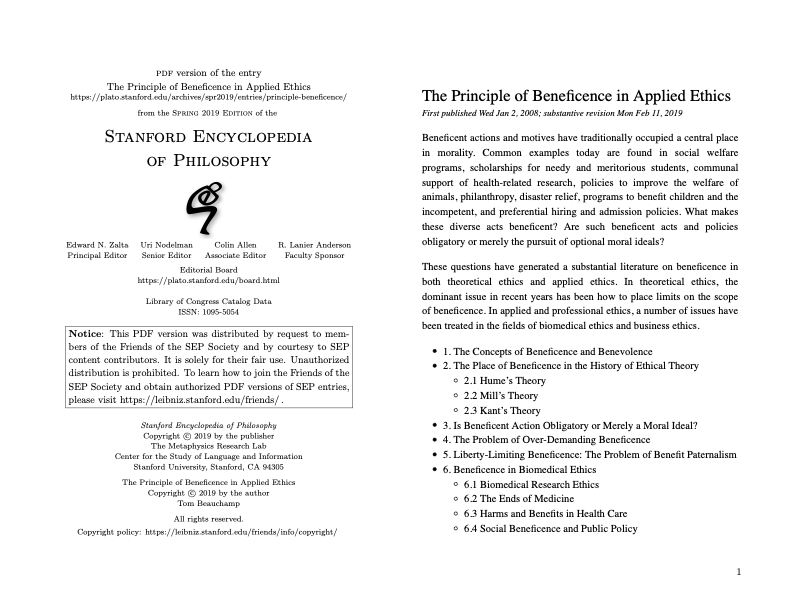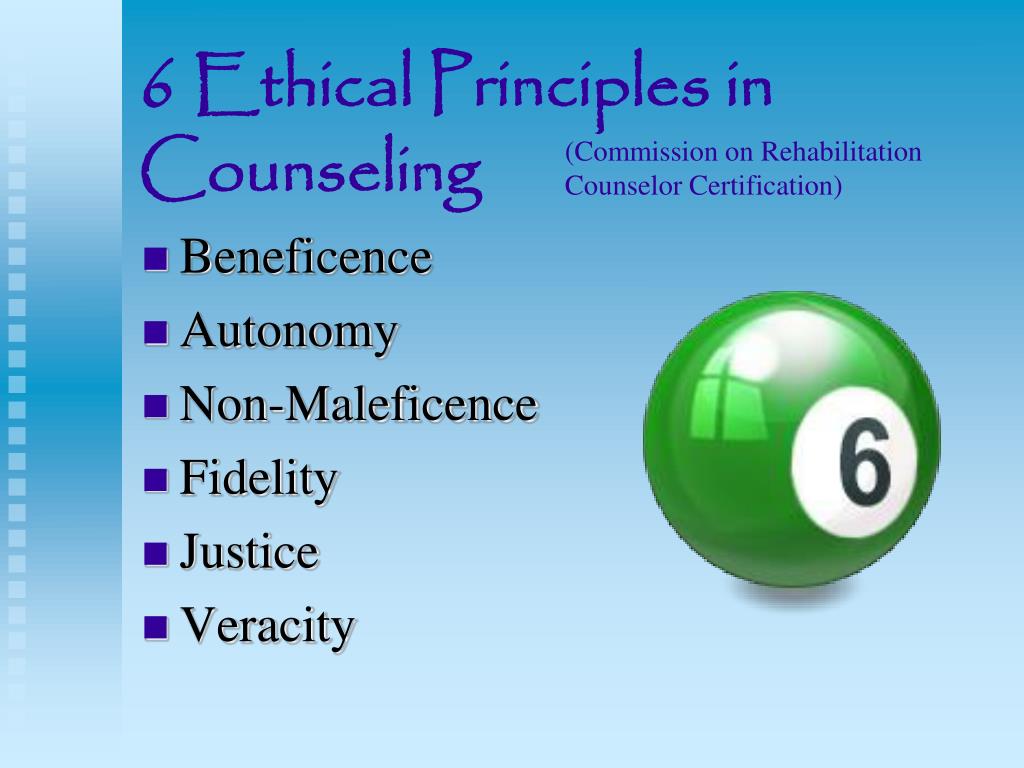

On the other hand, opioids can also result in addiction and even death. Pain Management: For patients experiencing severe pain with a terminal illness, opioids may be the only effective option to relieve extreme pain.They must consider the principle of Nonmaleficence in making decisions that minimize harm and suffering and maximize beneficial impact for the greatest number of patients.
Beneficence ethical principle definition how to#

The possible relief or healing effects of any action must be greater than the risks for the action to be ethical. In the process of securing informed consent, nurses and physicians help patients understand a procedure's potential pitfalls as well as its advantages. Weighing the benefits and risks of treatment is crucial to almost all medical decisions, whether to order a certain test, which medication to prescribe, if it is safe to perform surgery and when, or what procedure or treatment to recommend. Moral DilemmasĪssessing and comparing beneficence and Nonmaleficence is one of the more common ethical challenges. Another example is helping a patient get out of bed (beneficence) or, if necessary, putting up the guardrail on the bed to safeguard the patient from falling even if the patient does not feel they need the extra protection (Nonmaleficence). One example of beneficence is when a nurse provides emotional support to a patient who is going through a difficult time, whereas nonmaleficence calls for not mentioning to the patient some issue that might cause unnecessary stress. Nonmaleficence versus Beneficenceĭon't beneficence and nonmaleficence sound like the same thing, two sides of the same token? Well, they actually can be quite different and sometimes even come into conflict.īeneficence is the ethical principle of promoting good, while Nonmaleficence is to avoid harm. This involves balancing the principle of beneficence with Nonmaleficence which can be sensitive and complex. In some cases, it implies abstaining from certain interventions or treatments when the risks outweigh the benefits. Identifying early signs of adverse reactions to medication and taking action, such as alerting the doctor.Minimizing any adverse effects of imperative treatments, or.Avoiding or preventing all harm, whether intentional or due to negligence,.The principle of Nonmaleficence, rooted in the ancient medical maxim " primum nonnocere," means "first do no harm." The historical Greek Hippocratic oath does not actually include this wording, but it does state that the physician will "abstain from whatever is deleterious." What Does Nonmaleficence Mean in Nursing?
Beneficence ethical principle definition code#
Read The Code of Ethics for Nurses: Your Guide on the Job What is the Origin and Definition of Nonmaleficence? Nurses are advocates for patients and must find a balance among these principles while delivering patient care.

The Code of Ethics for Nurses establishes ethical parameters for nursing practice, including four underlying principles: What are the Standard Ethical Principles that Guide Nursing? In this article, you will recognize some thought-provoking scenarios where ethical choices blur the lines and get a glimpse of how cultural competency plays a pivotal role in ensuring that nurses provide compassionate care while preserving the sacred duty of Nonmaleficence. Yet, navigating moral dilemmas that intertwine the closely related principles of Nonmaleficence and beneficence can be a tightrope walk.Īs healthcare becomes increasingly diverse, cultural competency emerges as a critical capacity to uphold this principle. In the ever-evolving world of healthcare, nurses are entrusted with the fundamental principle of Nonmaleficence – doing no harm.


 0 kommentar(er)
0 kommentar(er)
